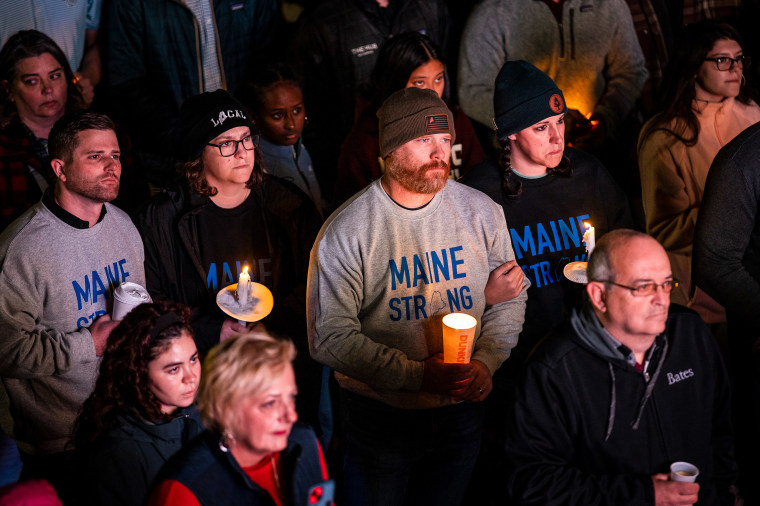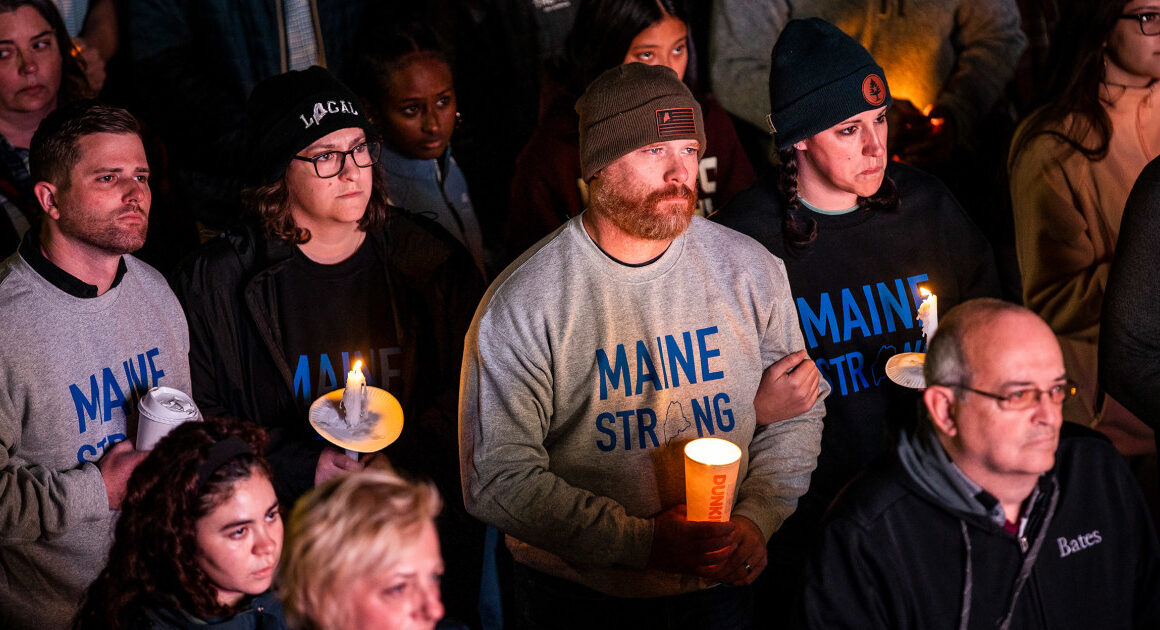The Army reservist who was held in a psychiatric hospital less than three months before he committed a mass shooting last fall in Lewiston, Maine, warranted a follow-up investigation upon his release, but it wasn’t conducted — one of a series of failures and “multiple errors” by his unit, an internal military report released Tuesday found.
As a result of failing to follow certain procedures, three officers in his unit were considered “derelict in their duties” and subsequently disciplined so that they are now precluded from further military advancement; names throughout the report have been redacted.
How the Army handled Robert Card and what his leadership knew about his mental state have come under scrutiny in the wake of the shooting that claimed 18 lives. An independent commission in Maine has he ard months of testimony from family members, and law enforcement and military members, and found that there were enough warning signs that the local sheriff’s office in Sagadahoc County should have done more to seize the gunman’s weapons prior to the Oct. 25 rampage.
Army reservists who worked with the gunman had deflected blame onto local law enforcement at a March commission meeting.
The Army’s highly anticipated report acknowledges communication missteps while also similarly concluding that local law enforcement “could have conducted a more extensive welfare check” on the shooter prior to the attack and initiated the state’s “yellow flag” law, which allows officers to confiscate a person’s firearm if they are believed to be a threat to themselves or to others.
The Army’s investigator wrote in the report that “if Sagadahoc County Sheriff’s Office (SCSO) had fully executed their health and welfare check on SFC Card in September 2023, then the mass shooting and suicide may have been avoided.”
The sheriff’s office did not immediately respond to a request for comment Tuesday.

The gunman, 40, was found dead by suicide after a two-day manhunt following the mass shooting.
Questions about his mental health surfaced as his family said publicly that he claimed to have been hearing voices months prior when he was fitted for high-powered hearing aids and that he had grown increasingly paranoid, including at his job at a recycling center, and believed people were talking negatively about him.
Last July, the shooter was at a training in New York, but he had shoved another reservist and isolated in a motel room in an incident that led state police to get involved. His Army Reserve commander had him hospitalized in a psychiatric unit at a civilian hospital for two weeks; his reported symptoms included psychosis, homicidal ideations and a “hit list,” according to the report. Upon his release, he was prohibited by the military from accessing weapons while on duty, although he still had privately owned firearms.
An Army medical provider did recommend that Card, who initially enlisted in 2002, be entered into the disability evaluation system, “which would facilitate his discharge from the military,” the report said.
But ultimately, his unit did not conduct a required “line of duty investigation,” which would have also documented the condition of his mental state, nor did his unit start the disability processing.
The report also noted that the gunman’s chain of command was not given any information regarding his diagnosis, prognosis or discharge instructions.
The Army’s report recommended ways for better communication between medical agencies and a soldier’s chain of command.
“While unit leadership took several consistent and sustained actions to address Sgt. Card’s deteriorating mental health, his mental state, there were also a series of failures by unit leadership,” Lt. Gen. Jody Daniels of the U.S. Army Reserve told reporters. “We’re doing the best that we can in terms of understanding what did transpire and then make changes for the future.”
At a state independent commission meeting in May, the gunman’s family testified that they believed he had a severe traumatic brain injury tied to his service as a hand grenade training instructor. The family said they tried to get local law enforcement to visit him at his home where he kept weapons, but believed he was more of a threat to himself than to others.
Following the shooting, his family donated his brain to the Boston University CTE Center, which said in March that there was “evidence” of a traumatic brain injury and its findings aligned with previous studies on the effects of blast injuries.
The Army’s report notes that Walter Reed National Military Medical Center is now helping to determine what might have motivated the mass shooting at the Lewiston bowling alley and bar through a forensic analysis of the shooter’s life.
“I am unable to determine, by a preponderance of evidence, what caused” the shooting, the investigator said, adding that the gunman’s military records don’t indicate that he suffered any significant brain trauma while on duty, and therefore, any brain-related injury is “not related to his military service.”
The gunman’s family could not immediately be reached for comment about the report.
,









